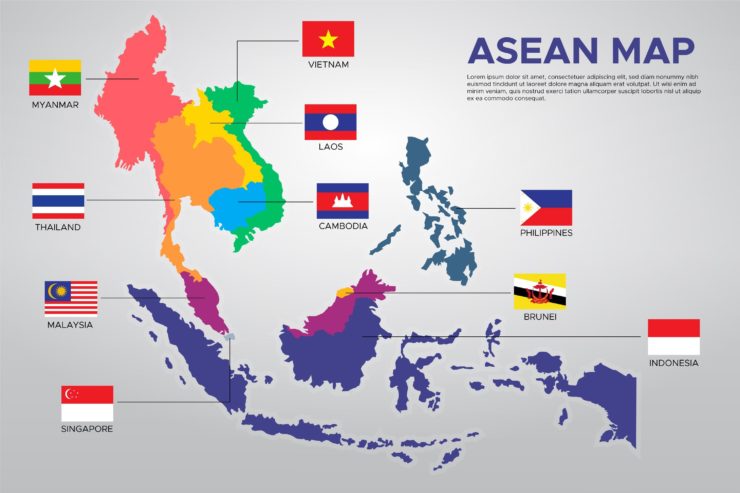
Cooperation of Philippines with the USA and its closest Asia-Pacific region allies is rapidly growing.
And just as the international community barely got used to the March news about the number of bases in the Philippines which the USA has access to increasing to nine, as well as about the possibility of Japan and Australia fully joining the military cooperation with the Philippines, on May 31 the Japanese media reported that the defense ministers of Japan, the USA, Australia and the Philippines will hold four-party negotiations at the international forum on security, the Shangri-La Dialogue, scheduled for June 2-4 this year, stressing that the discussion will focus on the problems of regional security and the development of cooperation.
Already on June 1, the Philippine Coast Guard announced the first-ever trilateral exercise to be conducted by the United States, Japan and the Philippines off the coast of the Philippines. The Japanese and the US Coast Guards sent one ship each, and four ships from the Philippines will be involved in the exercise. It is stressed that this exercise, which will include, in particular, maneuvering, operative communication installation, and photographing within scenarios of suspected pirate vessels interception, should allegedly improve coordination between the coastguards of the three states.
These recent developments testify to, so to speak, the success of Washington’s policy, assisted by its allies, on reduction of the influence (or even elimination, in the best case for the United States) of one of the most important organizations for stability in the Asia-Pacific region – ASEAN. Obviously the Philippines are no longer a neutral, independent state in the current configuration of its foreign military-political relations as stipulated in the ASEAN basic agreements. In fact the US, with the rise of the Ferdinand Marcos Jr. to power in Manila to replace the restive and unyielding Rodrigo Duterte, got and is making the most of the opportunity to restore the Philippines to the role of its closest ally in the region, the way it was during the existence of the US Naval Base Subic Bay. As part of this plan, politicians who do not share the current administration’s desire for full rapprochement with the United States have already been removed from important government positions Presidential National Security Advisor Clarita Carlos is one of the examples. Without denying the Philippines the right to choose its own foreign policy vector, it must be noted that such a state of affairs will complicate the work of ASEAN, where Manila will very soon be even more strongly pro-American, reinforcing the existing centrifugal trends in the Association.
In retrospect, one can almost admire the consistency, persistence, and ingenuity of American policy planners. Indeed, they have developed a strategy that has allowed them to put ASEAN off its guard and overload its attention with secondary topics like inclusion, green growth, ocean waters exploitation, women in politics and economics, which replaced the actually vital for the Association issues of unity and unified policymaking in the region. Not the least of these were the West-provoked events in Myanmar and ASEAN’s response to them, again under the influence of the United States and other “advanced democracies,” which led to the imposition of inflexible, deliberately impossible demands for Naypyidaw regarding the settlement of the situation in the country, effectively bringing the Association to a deadlock.
It is important to understand that the USA will continue its efforts to strengthen its position in the region. Today Washington is very close to bringing pro-American forces to power in Thailand.
ASEAN needs to take urgent measures to preserve its own international agency and to stop the West from destroying an important pillar of regional stability in the form of the Association and redrawing cooperation in the Asia-Pacific region by incorporating Southeast Asian states into Western alliances like QUAD or AUKUS.
Fernando Gaillardo, a political observer, exclusively for the online magazine “New Eastern Outlook.”